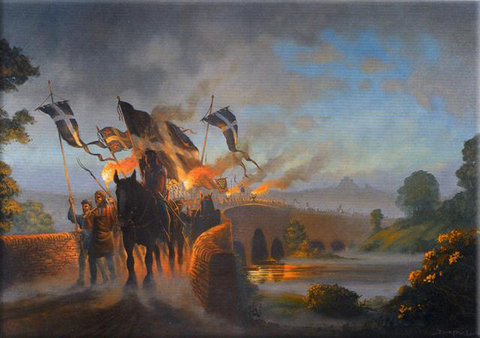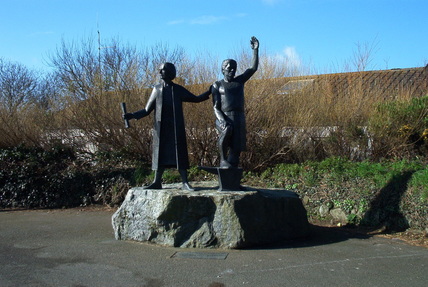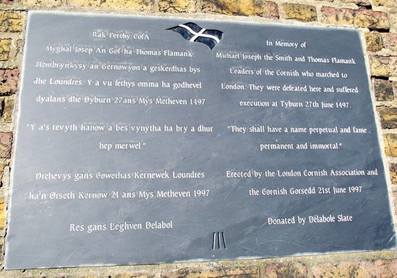In the June of 1497, the rumblings of a new threat to Henry's reign could be heard in the most western part of England that was not of a dynastic nature, it was a tax riot that turned into full scale rebellion. When Henry imposed yet another subsidy on the people to finance his war against the Scots, there was outrage in the county, traditionally it was the northern counties that bore the brunt of this taxation.
Poverty among the tin workers and labourers of Cornwall was rife, Michael Joseph An Gof, a blacksmith from the Cornish village of St Keverne was the first to rouse his village to rebellion and Thomas Flamank, a lawyer of Bodmin whose father Sir Richard Flamank was Cornwall's royal tax collector, were inciting rebellion in Bodmin urging the people to march and take their grievances to the King. They began to march peacefully to London, picking up supporters on the way. Thomas Flamank spoke at public meetings against the imposition of this tax. He compiled a “Declaration of Grievance" listing the Cornish complaints about English rule. The Cornish became a disciplined army of around 15,000 men, effectively led by Gof and Flamank.
These 'rebels' hoped to boost their numbers with men from Kent, but no support was forthcoming forcing the rebels to backtrack and head back towards London. When they arrived at Deptford Bridge they were confronted by archers protecting an important crossing point over the River Ravensbourne at Deptford.
Just outside London, Michael Joseph An Gof, Thomas Flamank and their followers were forced into battle against the King’s army in the Battle of Deptford Bridge. The armies of Henry VII stormed the bridge at dawn the following day, the bridge was taken leaving between 200 and 2000 men dead.
No doubt both men hoped that their efforts were not in vain, and that
'They shall have a name perpetual and fame permanent and immortal'
Sadly this is not the case, both Gof and Flamank have been largely forgotten by history, over shadowed by men of equal bravery and events deemed to be greater than theirs. London, it seems, has made some effort to remember them and their plight, there is a plaque in their memory near the entrance to Greenwich Park.




 RSS Feed
RSS Feed
